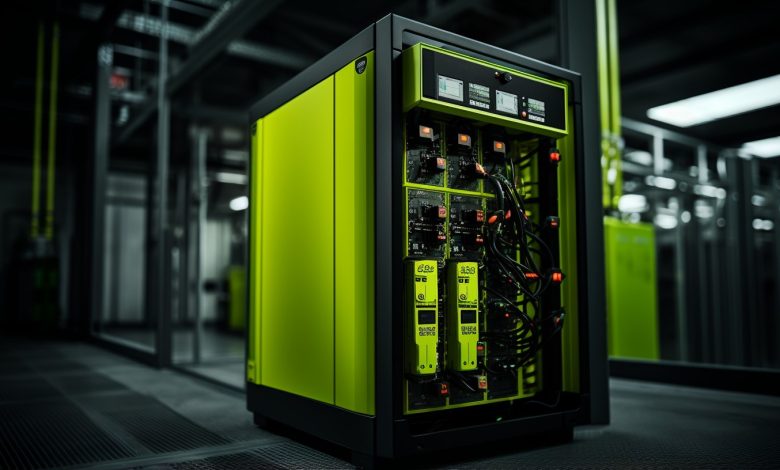The Role of UPS in Detention Security Systems Stability

In secure facilities, keeping systems running without interruptions isn’t just a convenience—it’s a necessity. Detention security systems rely on constant power to maintain safety and order. A robust UPS (Uninterruptible Power Supply) ensures these systems remain stable, even during unexpected power disruptions.
Maintaining Power Continuity During Unexpected Outages
Power outages in detention facilities can quickly escalate into security risks. A UPS bridges the gap by providing immediate backup power, ensuring detention security systems remain fully operational during blackouts. This seamless transition prevents downtime, keeping essential systems like surveillance cameras and alarms active.
With a well-implemented UPS, security personnel don’t have to worry about losing control over critical operations. These devices step in instantly, buying time for backup generators to kick in or for power to be restored. This stability not only maintains safety but also minimizes operational disruptions, allowing facilities to handle emergencies with confidence.
Safeguarding Critical Security Operations Against Downtime
Downtime in detention security systems isn’t just inconvenient—it can compromise safety and security. A UPS safeguards these operations by acting as a reliable energy source when main power fails. Systems like communication networks, access control, and surveillance equipment stay active, preventing potential vulnerabilities.
This level of preparedness ensures that no aspect of facility security is left exposed. With uninterrupted power, guards and administrators can continue monitoring and managing the environment effectively. UPS devices act as the first line of defense, preventing cascading failures and maintaining order even in challenging situations.
Supporting Alarm and Surveillance Systems With Uninterrupted Energy
Alarm and surveillance systems are the backbone of any detention facility’s security framework. A sudden power loss could leave these systems inactive at the worst possible moment. UPS solutions keep these critical systems running, ensuring constant vigilance over the facility.
By maintaining power, UPS devices allow security staff to respond to incidents without delay. Whether it’s monitoring live footage or receiving alerts from alarms, the uninterrupted energy flow ensures no gap in oversight. This reliability creates a safer environment for both staff and detainees, reducing risks and maintaining control.
Preventing Data Loss in Electronic Security Control Panels
Modern detention security systems rely heavily on electronic control panels that manage everything from doors to cameras. A power failure can lead to data corruption or loss, disrupting operations. A UPS prevents this by stabilizing power and allowing systems to shut down properly if needed.
These control panels are vital for coordinating various security measures. When they remain protected during outages, it ensures continuity in monitoring and managing facility activities. This protection also reduces the likelihood of costly repairs or data reconstruction, making UPS an essential component of detention security.
Enhancing Reliability of Emergency Locking Mechanisms
Emergency locking mechanisms are critical during incidents requiring containment. Without power, these systems may fail, leading to significant security breaches. A UPS ensures that locking systems remain functional, regardless of the power situation, maintaining safety and control.
By stabilizing power, UPS devices enable these mechanisms to operate consistently. This reliability is particularly important in high-stress situations where quick action is required. Facilities can trust that their security measures won’t falter when they’re needed most, thanks to the dependable support of a UPS.
Prolonging Equipment Life by Regulating Voltage Stability
Frequent power fluctuations can damage sensitive security equipment, shortening its lifespan. A UPS not only provides backup power but also regulates voltage, protecting detention security systems from surges and dips. This ensures that equipment operates optimally and lasts longer.
By preventing unnecessary wear and tear, UPS solutions save facilities from frequent replacements and maintenance costs. The added stability contributes to smoother operation, allowing security systems to function without interruptions or errors caused by unstable power. This combination of reliability and cost-efficiency makes UPS an indispensable tool.
Enabling Smooth Transitions to Backup Generators During Failures
Backup generators are essential for long-term power outages, but they often take a few seconds to start up. During this critical window, a UPS keeps detention security systems running seamlessly. This ensures there’s no gap in power supply, maintaining full functionality throughout the transition.
UPS devices act as a bridge, ensuring that all systems continue operating without disruption. This smooth handoff allows staff to focus on addressing the situation at hand rather than troubleshooting equipment issues. By providing consistent energy flow, a UPS reinforces the facility’s ability to handle power failures confidently and effectively.
